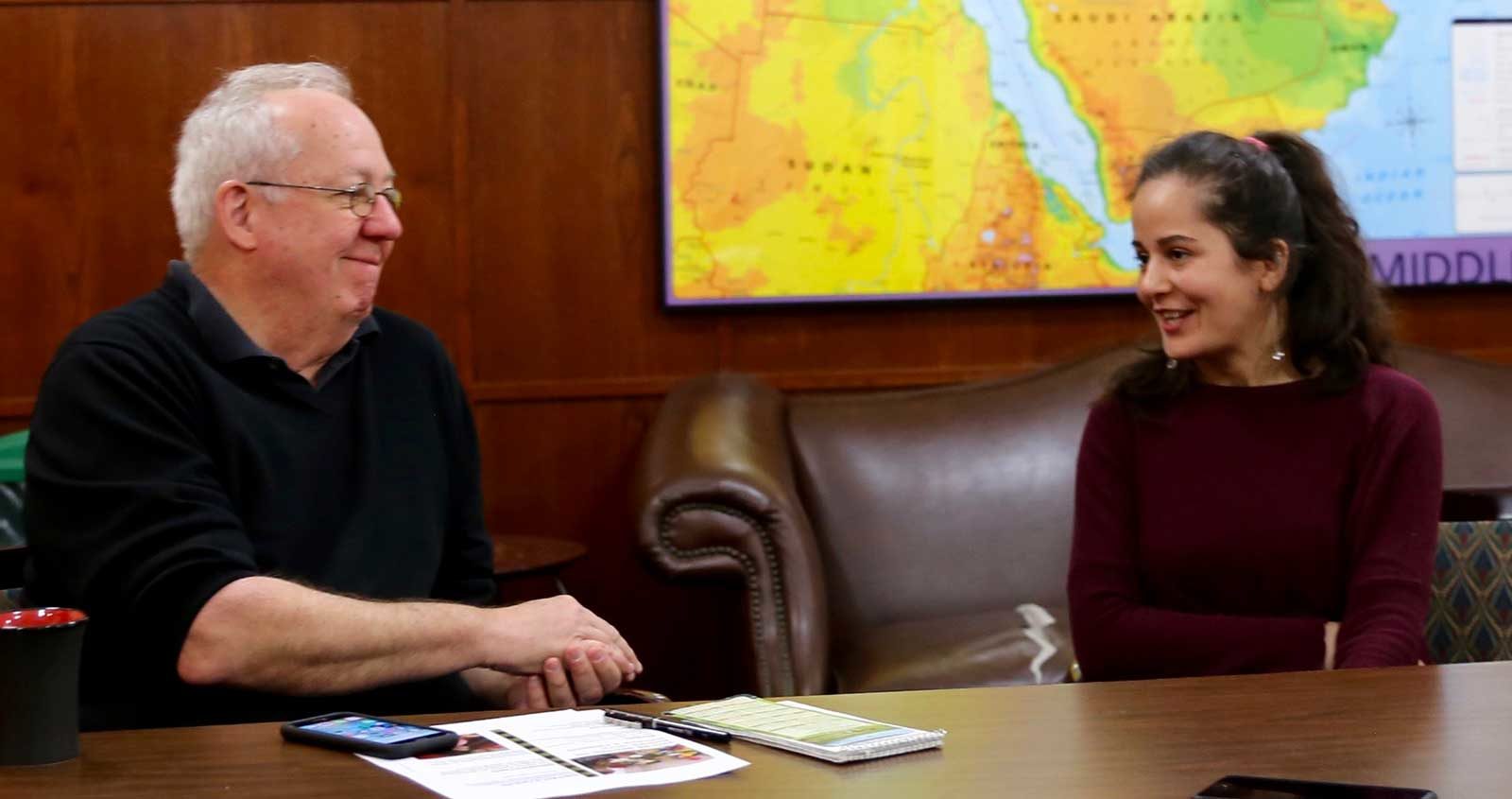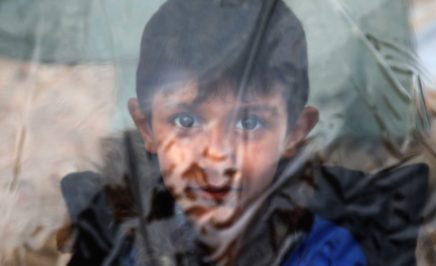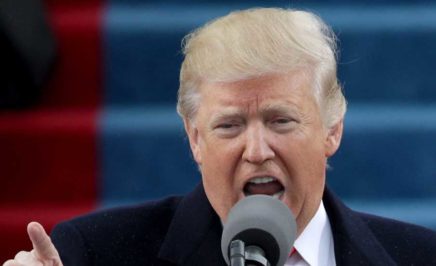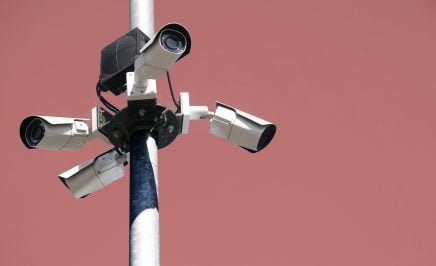For weeks, Suzanne Khoja had Monday January 30 etched on her mind. She had been thinking of little else since finding out it would be the date she and her family would finally land in the US after a gruelling three-year asylum application process. That process had started after the family had fled the ongoing violence in their hometown of Aleppo, Syria, and slipped across the border to Turkey, stopping to spend the night among other refugees at the sprawling tent city on the border.
For more than three years, the family lived and sought work in Turkey, but opportunities for refugees are scarce, and they regularly faced discrimination because of their immigration status and ethnicity, said Suzanne, 28.
“Life in Turkey was so tough and it taught us a lot,” she told Amnesty International. “We were just a number. You don’t have any rights, you can’t do anything.”
When the family finally received word they would be allowed to resettle in the US, they were elated. “It was a dream for us to come and live our lives — maybe even like our [former] lives in Syria. We were really relieved,” Suzanne said.
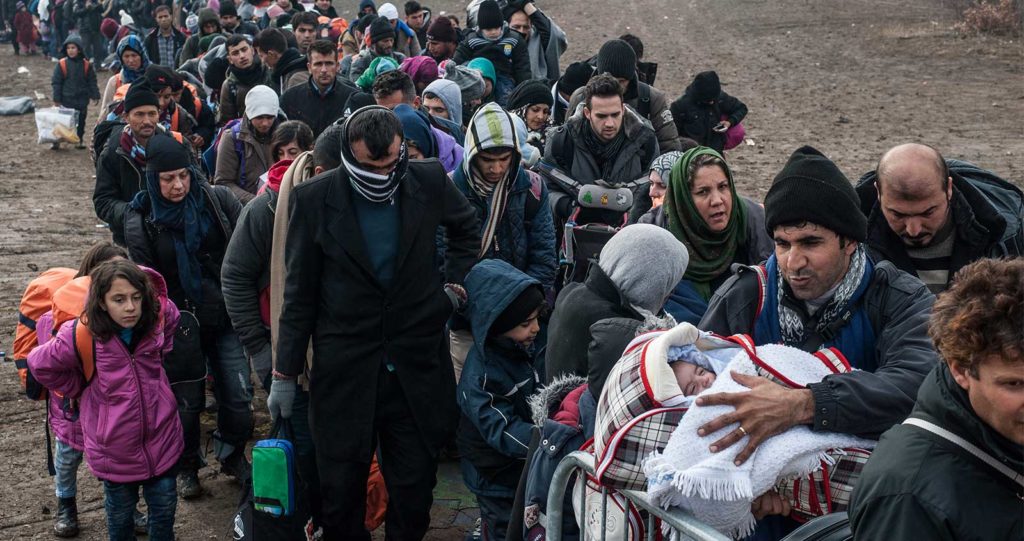
Trump’s immigration order
In the days leading up to January 30, Suzanne, her parents and five siblings ranging in age from 12-30, had packed their belongings and disconnected the electricity and water from their small rented apartment in Istanbul. The government had even invalidated their identity cards, which allowed them to do everything – from being employed to visiting the hospital, or attending school in Turkey. But just 48 hours before their flight, Suzanne received a crushing phone call.
President Donald Trump had, the evening before, handed down his executive order on immigration that barred Syrian immigrants – like Suzanne’s family – along with nationals from Iraq, Iran, Libya, Somalia, Sudan, Syria and Yemen, from entering the US for 90 days. It also suspended the refugee resettlement for 120 days. The family would no longer be allowed to travel.
“I will never forget the day they told us we couldn’t go to the US,” said Suzanne. “I didn’t believe it. It was like American people said to us” ‘you are different, you’re not like us, so you can’t be here’.”
“I didn’t believe it. It was like American people said to us” ‘you are different, you’re not like us, so you can’t be here’”
Suzanne Khoja
The following 10 days for the family mirrored the chaos that erupted at ports of entry across the US, as visitors, refugees, students, and even permanent residents alike were detained and stopped from boarding flights or taken off planes abroad.
Protesters swarmed airports and legal advocates worked round the clock to free detained clients and file suits to block the executive order, by now dubbed the “Muslim ban”. Meanwhile, a small group of volunteers at Rutgers Presbyterian Church, who were providing resettlement assistance to Suzanne’s family, were working equally hard to find a way to help.
“We were doing everything we could think of,” said David Mammen, the coordinator for the Church’s refugee task force. “We were calling senators and congressman — someone knew Justin Trudeau and sent him an email to ask if they could go to Canada.”
As events unfolded, Dave reached out to Suzanne by phone to keep her updated on the latest developments. That small gesture was enough to sustain the family through the next few days, she said.
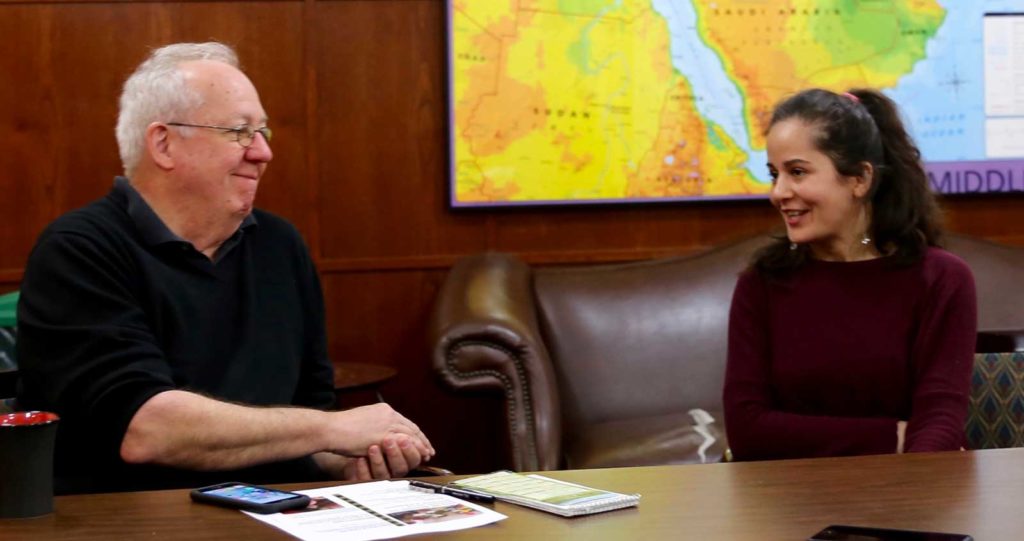
“After the executive order, we were out of hope,” Suzanne recalls. “If you live in Turkey and Syria and go through this whole situation, you feel like nobody cares about you, if you live or die, or if you’re starving. But when somebody just calls you and says ‘hi’. Hi is enough, you know?”
In the end, it was a federal judge in Seattle that enabled the family to resettle. On February 3, US District Court Judge James L. Robart issued a temporary restraining order stopping officials from enforcing the immigration ban nationwide, until more hearings could be held. The Khoja family received the news and quickly took advantage of the opening, getting on a plane the following Tuesday, some 10 days after the executive order was issued.
They arrived at New York’s JFK airport to a group of reporters and around 50 volunteers from Rutgers and its partners at three other churches and synagogues.
“We were so tired. I was shocked, but so happy to be [in the US],” said Suzanne.
Life in the US
In the last two months since their arrival, the entire family has been busy learning English. Suzanne, who worked as an English teacher in Syria, has begun looking for work.
“I’m waiting to start a job, to be an American citizen, maybe go on some journeys or an adventure,” she said. “[But] I hope I can go back [to Syria]. It’s my homeland. I’d love to go there and to see the land. I miss everything.”
On March 6, Trump released an amended travel ban that, among other changes, excluded Iraqi citizens and immigrants who had already been granted green cards or valid visas. However, the revised ban was also immediately halted by two different courts before it could be enforced. The legal battle over the executive order is currently being played out in cases before two different appeals courts. One case originating in Hawaii would stop the government from implementing the 90-day travel ban on nationals from the six Muslim-majority countries, and the 120-day suspension of the US Refugee Admissions Program. Another case originating in Maryland seeks to block only the travel ban portion.
“The Executive Order, by its plain language, authorises Trump to add more countries to the list and to extend the ban on entry basically as long as the President wants”
Patrick Taurel
Trump, meanwhile has said that his executive order is necessary for national security and has vowed to take the fight all the way to the Supreme Court, if necessary. Patrick Taurel, an immigration lawyer with Washington DC law firm Clark Hill, says that a battle in the high court could potentially “decide what America looks like for years to come,” and have broader implications for immigration to the US.
“If Trump wins this case, the ban will not be limited to 90 days and the six named countries,” Taurel said. “The Executive Order, by its plain language, authorises Trump to add more countries to the list and to extend the ban on entry basically as long as the President wants. The stakes in this case are very high.”
US President Trump has cruelly slammed the door on tens of thousands of vulnerable people. We can step up and provide safety to those in need.
